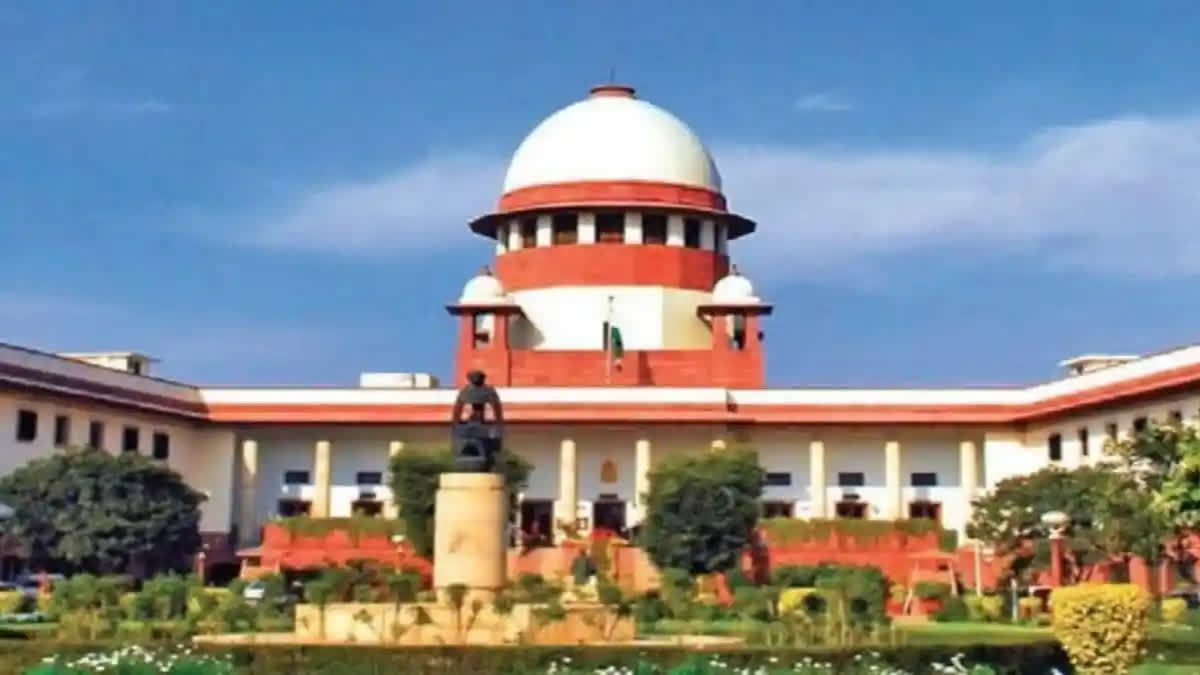New Delhi: The Supreme Court set aside the conviction of a man charged under the Scheduled Castes/Scheduled Tribes (Prevention of Atrocities) Act, saying that the language of the Act “provides that the offence must be committed upon a person belonging to Scheduled Castes or Scheduled Tribes with the intention that it was being done on the ground of caste”.
A bench of Justices BR Gavai, Prashant Kumar Mishra and Sandeep Mehta set aside the conviction of appellant Dashrath Sahu under Section 3 (1)(xi) of the Scheduled Castes/Scheduled Tribes (Prevention of Atrocities) Act. “The language of Section 3(1)(xi) of the SC/ST Act is pari materia as the same also provides that the offence must be committed upon a person belonging to Scheduled Castes or Scheduled Tribes with the intention that it was being done on the ground of caste”, said the bench, citing apex court’s judgment in case of 'Masumsha Hasanasha Musalman vs State of Maharashtra' (2000).
The apex court examined the FIR and the sworn testimony of the prosecutrix/complainant as extracted in the judgments of the High Court as well as that of the trial court. The bench noted that the case as projected in the FIR and the sworn testimony of the prosecutrix would reveal that the prosecutrix/complainant was engaged in doing household jobs in the house of the accused-appellant, who tried to outrage her modesty while the prosecutrix/complainant was doing the household chores. “Thus, even from the allegations of the prosecutrix, the offending act was not committed by the accused with the intention that he was doing so upon a person belonging to the Scheduled Caste”, said the bench.
The bench said a plain reading of the Section makes it clear that the offence of outraging modesty should be committed with the intention that the victim belonged to the Scheduled Caste category. In the case, the Chhattisgarh High Court reduced the sentence from one year to six months imprisonment even though the appellant filed a compromise agreement with the victim.
The High Court had said the offence under the Scheduled Castes and Scheduled Tribes Prevention of Atrocities Act was not compoundable, however, it partly allowed the appeal and acquitted the accused of the offences punishable under Sections 354 and 451 IPC. Concluding the judgment, the bench, in its January 29 judgment, said: We believe that the conviction of the accused-appellant for the offence under Section 3(1)(xi) of the SC/ST Act was otherwise also not sustainable on merits. Hence, the conviction of the accused-appellant as recorded by the trial Court and upheld by the High Court for the offence under Section 3(1)(xi) of the SC/ST Act is hereby set aside and quashed. The appellant is acquitted of the charge under Section 3(1)(xi) of the SC/ST Act. The appellant is on bail. His bail bonds are discharged”.



